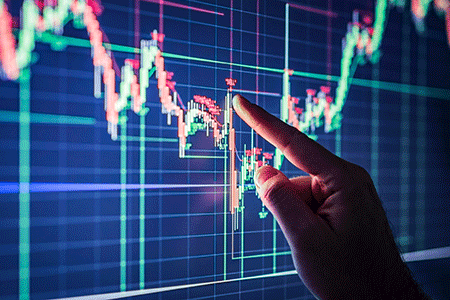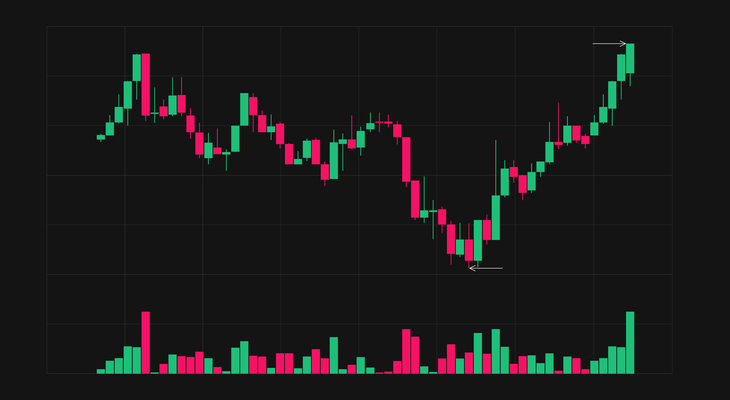The art of forex trading is a high-stakes game of chance and skill. Each step made can mean the difference between success and failure, profit and loss. It is not for the faint of heart, as the complexity of the markets and the risks that come with trading make it a thrilling yet daunting endeavor.
But with the right resources, knowledge, and tools, mastering the art of forex trading is a path to profitable currency speculation. A licensed, regulated broker with at least five years of experience, like FXTM, provides the necessary tools and resources needed to begin trading.
By downloading their MetaTrader 4 or 5 trading platforms, traders can access educational resources, Pivot Point tool, Dow Jones insights, and multiple forex tools and calculators.
With effective capital and risk management, this can be the start of a journey to successful currency speculation.
Key Takeaways
- Forex trading involves speculating on currency prices to potentially make a profit.
- Risk management tools and techniques should be implemented to mitigate risks.
- Fundamental analysis looks at the reasons behind forex market reactions, while technical analysis studies price action and trends on price charts.
- Forex brokers like FXTM act as intermediaries for retail traders, providing access to trading platforms and educational resources.
What is Forex?
Forex trading is the transaction of changing one currency into another currency with the aim of potentially making a profit by speculating on currency prices. Currencies are traded in pairs and involve buying and selling based on price movements. High liquidity allows for quick execution of orders.
There are seven major currency pairs that account for over 80% of daily forex trade volume, all including the US Dollar. Cross currency pairs and exotic currency pairs, from emerging or developing economies, paired with a major currency, are also traded but can be riskier due to volatility and less liquidity.
Fundamental analysis looks at the reasons behind forex market reactions and incorporates news and economic data to understand currency demand. Central bank and government policies also influence supply and demand of currencies.
To master the art of forex trading, one must understand the basics of currency pairs, fundamental analysis, and risk management tools and techniques.
Platforms and Tools
Platforms and tools are available to aid in successful currency speculation. Forex trading platforms such as MetaTrader 4 and MetaTrader 5 allow traders to access trading platforms and use tools and indicators for real-time market analysis.
Technical analysis tools, such as charts and indicators, can help identify trends in currency prices. Risk management tools, such as margin calculators, pip calculators, and profit calculators, can help traders manage capital effectively. Widgets can also enhance the trading experience.
Forex brokers, such as FXTM, offer educational resources and a risk-free demo account to learn forex trading. FXTM also offers additional services, such as Pivot Point tool and Dow Jones insights.
Account opening and management is easy with FXTM, and customer service is available for any questions or assistance.
Risk Management
Risk management is an essential component of successful currency trading. Forex traders need to understand the importance of risk management and the various techniques available to help manage risk.
Risk management is the practice of limiting losses and maximizing gains, while minimizing stress. Common techniques used by traders include setting a stop-loss order, diversifying investments, and using leverage carefully.
Stop-loss orders are used to limit potential losses by exiting a trade when a certain price level is reached. Diversifying investments helps to spread risk over a variety of asset classes and markets. Leverage can be a double-edged sword, so it is important to use it with caution.
Risk management can help traders maximize profits and prevent large losses. It is important to identify and manage risk to stay in the game and make consistent profits.
Setting risk limits, diversifying investments, and using leverage judiciously can help traders stay in control and maximize their potential.
Frequently Asked Questions
What is the best time of day to trade forex?
The Forex market is open 24 hours a day, five days a week. According to a survey from the Bank for International Settlements, the average daily trading volume in the Forex market is over $6.5 trillion. This means that there are always trading opportunities available, regardless of the time of day.
However, the best time to trade Forex may depend on individual trading strategies. Technical analysis and price action trading strategies can be beneficial during periods of high liquidity, such as during the opening of markets in London and New York. During these times, there tends to be more volatility, and thus more opportunities to profit.
How much capital do I need to start trading forex?
When trading forex, it is important to understand the risk management and technical analysis involved. The amount of capital needed to start trading forex varies depending on the risk appetite and trading style of the individual.
As a rule of thumb, it is recommended to start with at least $500, though more may be needed to obtain the desired profits. Before investing, it is important to evaluate the risk management strategy and technical analysis of the currency pairs that will be traded.
The degree of capital needed depends on how much leverage is used, and the account type. To ensure success in forex trading, it is important to understand the risks involved and to have a good strategy in place.
What are the most popular currency pairs to trade?
Navigating the foreign exchange market can be a daunting task. However, understanding the most popular currency pairs to trade can provide traders with a roadmap to success.
The seven major currency pairs, which include the US Dollar, account for over 80% of daily forex volumes and can offer traders a good starting point. Technical analysis of these pairs can help traders identify trends in the market, while risk management tools and techniques can help control losses.
Cross currency pairs and exotic currencies can also provide opportunities to diversify trading portfolios. With the right knowledge and strategies, traders can find profitable currency speculation in the forex market.
How do I set up stop loss and take profit orders?
Stop loss and take profit orders are risk management tools that can be used to limit losses and lock in profits when trading in the forex market.
Stop loss orders are placed to automatically close a position if it reaches a certain level of loss, while take profit orders are placed to automatically close a position when it reaches a certain level of profit.
These orders can be set up using manual or automated methods, depending on the trader’s preference.
Automated orders are programmed to execute when a predetermined price is reached, while manual orders require the trader to manually enter the order when the desired price is reached.
Both methods can help traders manage risk and ensure their trading strategies are successful.
How do I choose a reliable forex broker?
Choosing a reliable Forex broker is essential to successful trading. A licensed, regulated broker with at least five years of experience should be considered. The broker should also offer risk management tools and analysis capabilities such as technical analysis.
Additionally, the broker should provide educational resources and a demo account for beginners. To ensure the broker is reliable, consider their customer service, trading platform features, account opening process, and additional services.
To manage risk, look into the broker’s account types, leverage options, and risk management tools. In this way, a reliable and trustworthy Forex broker can be chosen.
Conclusion
By employing effective risk management strategies, utilizing the right platforms and tools, and having a good understanding of the market, forex traders are presented with a unique opportunity for successful currency speculation.
For those willing to invest the time and effort, forex trading can become a lucrative and rewarding endeavor.
Though it may seem daunting at first, with the right guidance, the art of forex trading can easily be mastered, setting traders on a path to profitable currency speculation.











